Five more forum sessions on tap Tuesday evening
//
Estimated Read Time:
Five forum sessions will be held Tuesday evening on a range of topics, from biostatistics in clinical research to engaging diverse communities in clinical trials and overcoming cancer workforce challenges. The forum sessions run concurrently from 5 to 6:30 p.m. ET at the convention center. Here’s a closer look at tonight’s sessions.
FO02: Beyond Platitudes and Proclamations: Meaningful Engagement of Diverse Communities in Cancer Research
Room W311 E-H, Convention Center
Engaging diverse communities in clinical trials is no longer an afterthought or even an option. Current requirements from the National Institutes of Health, the U.S. Food and Drug Administration, and other agencies require clinical trials to engage diverse communities who have historically been underrepresented in biomedical research (UBR).
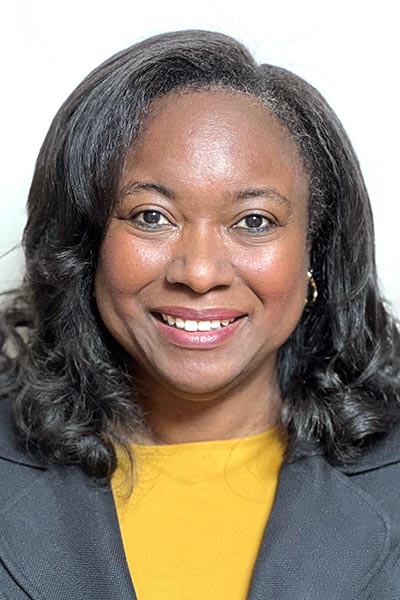
“It’s easy to say we want diverse populations in research, but how to actually make diverse engagement happen requires more than platitudes and proclamations,” said Monica L. Baskin, PhD, Professor of Hematology/Oncology and Assistant Vice Chancellor for Community Health Equity, Health Sciences at the University of Pittsburgh and Associate Director of Community Outreach and Engagement and of Health Equity at UPMC Hillman Cancer Center.
“You’ve got to engage with populations who have historically not been part of research,” continued Baskin, who will moderate the forum. “In some populations, they have not been part of research for reasons including researchers’ failure to provide informed consent, patient mistrust in the health care system, and clinical research staff assumptions that some groups would not want to participate. We need to find ways we can show the benefits of being involved in research and we need to lower the barriers to become involved in research. Transportation may be a barrier, or overnight lodging, or time off work. We have to recognize those barriers, talk about them, and find ways around them.”
The forum’s speakers will examine models, strategies, and metrics that can help boost engagement of UBR populations.
Erica T. Warner, ScD, MPH, Associate Professor of Medicine at Harvard Medical School and Assistant Investigator at Massachusetts General Hospital, will discuss approaches to building accessible, acceptable, and trustable programs in cancer research. Jiyoung Ahn, PhD, Professor of Population Health and of Medicine at New York University Perlmutter Cancer Center, will focus on meaningful engagement of Asian American populations in cancer research.
“The ultimate goal is to get us to the point where we can all live a life without cancer,” Baskin said. “But we don’t get to cross out cancer as a public health issue if we don’t diversify our research base to really learn what works, and for whom, with precision oncology. We don’t get to ‘precision’ if we don’t have a diverse, robust set of participants.”
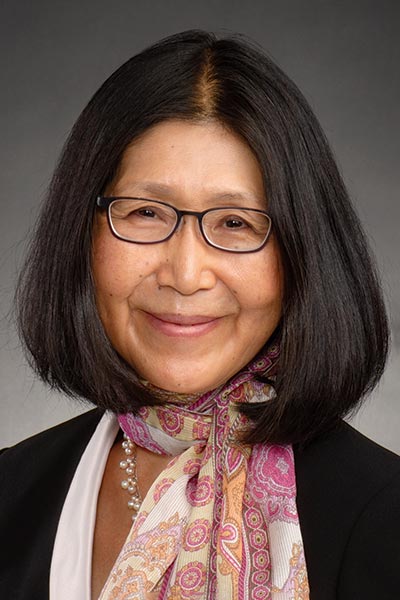
FO05: What Does a Biostatistician Really Think of Your Study and Why?
Room W311 A-D, Convention Center
Biostatisticians are essential to every research study, ensuring the study hypothesis and statistical hypothesis match, verifying the study design is appropriate, and working to maximize the potential for a vigorous and reproducible study result.
“Clinical trialists know biostatisticians have to be part of clinical trials, but basic and translational research scientists often feel that they know what needs to be done,” said Motomi Mori, PhD, Chair and Endowed Chair of Biostatistics at St. June Children’s Research Hospital. “[Research scientists] can have a deterministic viewpoint — things either happen or they don’t happen — [so] no biostatistician needed. They don’t think about stochastic elements in their work. Genetic mutations or other variables can affect the probability or likelihood of an event, and the mechanism is not deterministic.”
Biostatisticians can sometimes rescue a poorly designed preclinical or translational study, but it’s more time- and cost-effective to bring biostatisticians into the loop during study design to assist with things like randomization, said Mori, who will moderate the forum.
“Randomization is very important to avoid systemic biases, but it takes a strategy to randomize,” she said. “Too many times we see preclinical and translational data that are clustered by day or by experimenter, maybe one person did the experimental group and another the control group. Or someone did the controls one day, then came back a few days later and ran the experimental group because it was more convenient. A biostatistician can help you avoid potential biases and systematic variations to make for stronger, more robust research.”
Christopher Cabanski, PhD, Senior Director of Network Clinical Research at Parker Institute for Cancer Immunotherapy, will discuss the use of biostatistics in clinical research during the forum. Yu Shyr, PhD, Professor and Chair of Biostatistics at Vanderbilt University and Director of the Vanderbilt Center for Quantitative Sciences and Vanderbilt Technologies for Advanced Genomics Analysis and Research Design, will discuss biostatistical considerations for basic and translational research.
“We have a couple of really hot topics from current study designs with rare diseases, N-of-1 trials, and omics studies with huge amounts of data and very few subjects,” Mori said. “There are important questions around trial size, trial strategies, and biomarker discovery studies — and we will have plenty of time for audience questions.”
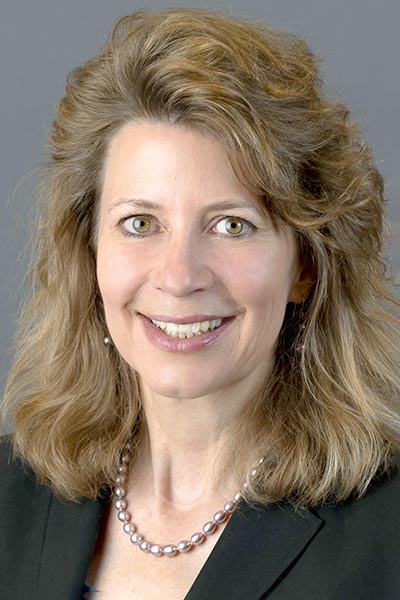
FO06: Building and Retaining the Cancer Workforce of the Future: Challenges, Innovation, and Diversity
Room W307, Convention Center
The cancer workforce is under siege from all sides. An ever-tightening squeeze on research funding and subpar pay rates is making it increasingly difficult to attract and retain trainees. Workforce shortages are endemic across all sectors, including cancer centers and academic institutions. And cancer-focused trainees, staff, faculty, and leaders are failing to reflect the diversity of society and the patient population.
“We faced all of these challenges before COVID and they are accelerating through post-COVID fallout,” said Cornelia Ulrich, PhD, MS, the Jon M. and Karen Huntsman Presidential Professor in Cancer Research, Executive Director of the Comprehensive Cancer Center at Huntsman Cancer Institute, and Professor of Population Health Sciences at the University of Utah.
“A key challenge as we meet in Orlando is making sure that we have a surge of trainees who are interested in cancer research, interested in carrying that forward on an academic or industry level,” said Ulrich, who will moderate the forum. “And then paying them adequately and retaining them has been a challenge that we all face.”
The forum’s presenters will offer strategies to help overcome or circumvent these challenges and provide time for attendees to offer their own insights. Sanya A. Springfield, Director of the National Cancer Institute (NCI) Center to Reduce Cancer Health Disparities, will discuss diversity from the NCI perspective. Leonidas C. Platanias, MD, PhD, Director of the Robert H. Lurie Comprehensive Cancer Center at Northwestern University, will explore the challenges of attracting and retaining cancer center staff.
“We are all looking for novel approaches,” Ulrich said. “We hope our audience will be engaged in discussing the solutions they have found. I hope that some of the workforce challenges will be addressed through artificial intelligence. ChatGPT and other AI applications may help with some of our staffing issues and support our next generation of trainees. These are areas where we can all learn from each other.”
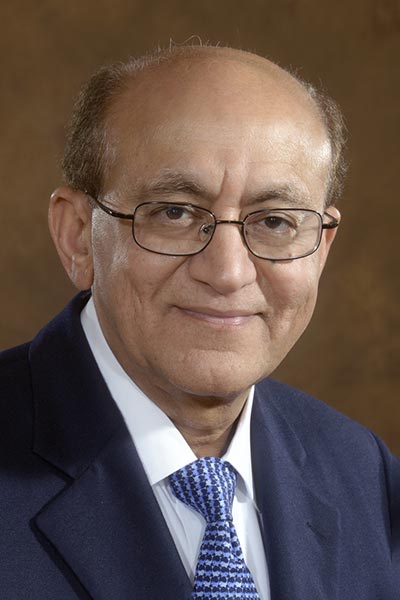
FO08: What Is the Future of Antiangiogenesis in the Era of Immunotherapy?
Tangerine Ballroom 1 (WF1), Convention Center
Antiangiogenic agents can normalize tumor blood vessels and reprogram the immunosuppressive tumor microenvironment (TME) into an immunostimulatory milieu, leading to improved outcomes from immunotherapies. This transient effect has underpinned FDA approval of seven different combinations of vascular endothelial growth factor (VEGF)/vascular endothelial growth factor receptor (VEGFR) pathway inhibitors with immune checkpoint inhibitors for four types of solid tumors in recent years. More than 300 combination trials in multiple malignancies are currently underway.
“I first proposed the benefit of normalizing blood vessels in 2001 by inhibiting VEGF/VEGFR pathway based on our preclinical observations, and to explain why anti-VEGF antibody failed as a monotherapy in colon cancer patients but succeeded when combined with chemotherapy,” said Rakesh Jain, PhD, Director of the Edwin L. Steele Laboratory for Tumor Biology at Massachusetts General Hospital and A. Werk Cook Professor of Radiation Oncology (Tumor Biology) at Harvard Medical School. “I hypothesized that inhibiting VEGF/VEGFR improved the tumor blood supply to bring in more chemotherapy and get more effective treatment. The hypothesis was counterintuitive at the time and not very well received.”
It took years of lab work to show that antiangiogenesis agents transiently normalize tumor blood supply and the immunosuppressive TME, said Jain, who will moderate the forum. The session’s speakers will discuss combinations of anti-VEGF/VEGFR agents with immune checkpoint blockers, cell-based therapies, and vaccines.
George Coukos, MD, PhD, FAACR, Director of Ludwig Cancer Research Lausanne and Professor of Oncology at the University of Lausanne, Switzerland, will review the latest findings in reciprocal modulation between T-cell therapy and tumor vasculature. Gabriele Bergers, PhD, Group Leader and Professor of Oncology at the Center for Cancer Biology, University of Leuven, Belgium, will explore strategies to transform endothelial cells into tertiary lymphoid-like structures to increase trafficking of immune cells into tumors.
“In 2012, we showed that anti-VEGF/VEGFR can improve the outcome of immunotherapy,” Jain said. “Recently, we showed that antiangiogenic agents can also improve the trafficking and efficacy of CAR T-cell therapy in the solid tumors. The future of antiangiogenic combination therapy appears golden. We are going to see a lot more approvals of combinations of antiangiogenic drugs with various types of immunotherapies.”
FO11: Driving Towards Rational Combination ICT Trials
Chapin Theater, Convention Center
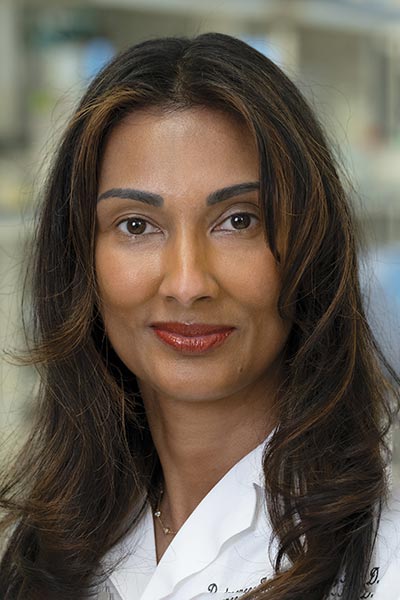
Immune checkpoint blockade therapy (ICT) has brought the word cure into the world of cancer therapy. However, ICT is only effective for a minority of cancer patients, and combining ICT with other therapies has shown limited success.
“ICT only works for 20 percent to 30 percent of patients and we want to see it work in 100 percent,” said ICT pioneer Padmanee Sharma, MD, PhD, Professor in the Department of Genitourinary Medical Oncology and the Department of Immunology at MD Anderson Cancer Center. She is also Scientific Director of MD Anderson’s Immunotherapy Platform and Director of Scientific Programs at the James P. Allison Institute.
“Combination strategies — and specifically, rational combination strategies — are essential to our future success,” said Sharma, who will moderate the forum.
Sharma will discuss the latest research investigating the mechanisms of response and resistance to ICT, which may guide strategies to develop rational ICT combinations that target specific pathways and vulnerabilities.
Elizabeth M. Jaffee, MD, FAACR, the Dana and Albert “Cubby” Broccoli Professor of Oncology, Deputy Director of the Sidney Kimmel Cancer Center, and Co-Director of the Gastrointestinal Cancers Program at Johns Hopkins University, will explore the contribution of agonists to combination immunotherapy for PD-1 resistant cancers. Thomas Urban Marron, MD, PhD, Director of the Early Phase Trials Unit at the Tisch Cancer Institute and Associate Professor of Medicine at the Icahn School of Medicine at Mount Sinai, will review recent efforts to identify and use biomarkers to more rationally design ICT-based combination therapies.
“Improving our understanding of the mechanisms of response and resistance may provide critical information to identify targets to help us build rational combination strategies or identify biomarkers to help select appropriate patients for ICT combinations, which will enable better outcomes for patients,” Sharma said.




